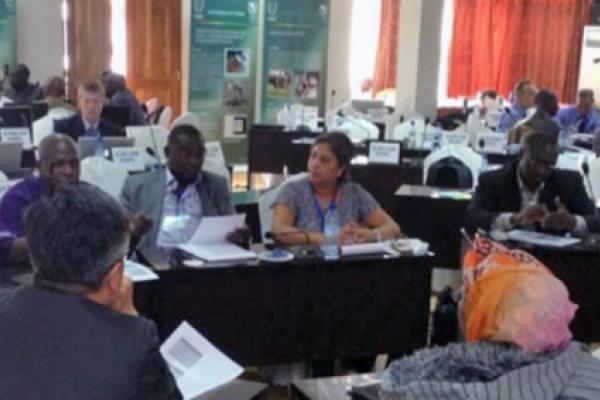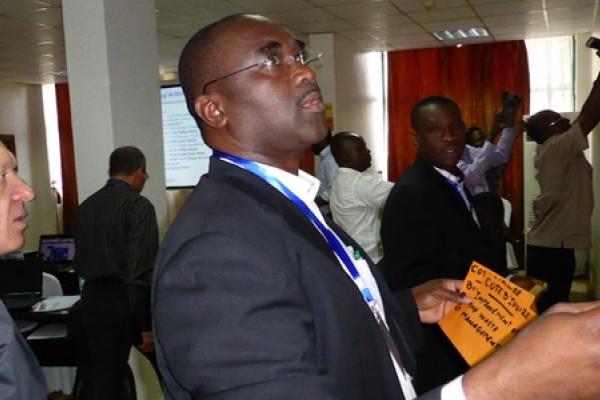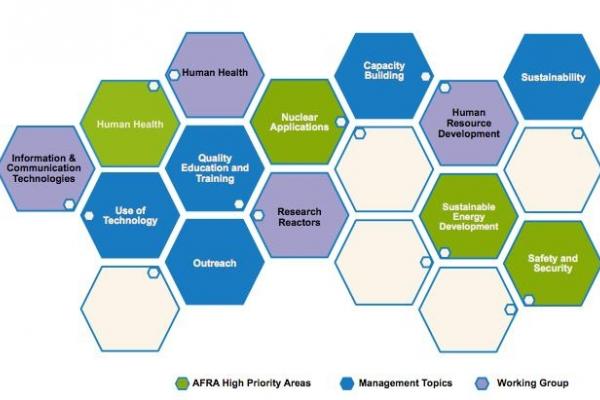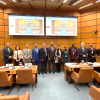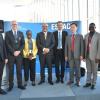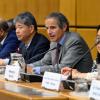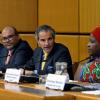The First AFRA-NEST General Assembly took place in Tanzania
The First AFRA-NEST General Assembly took place in Tanzania
- 10 September 2013
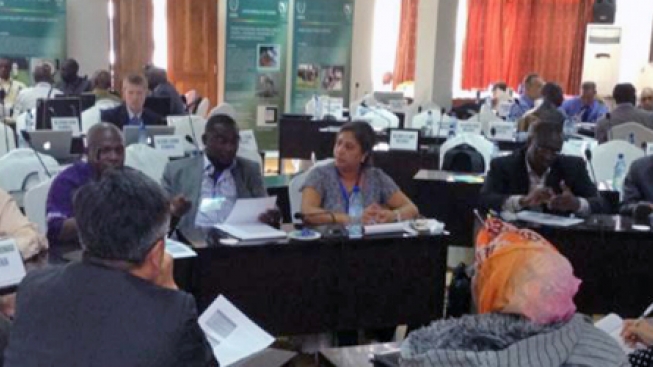
The IAEA Member States in Africa have prioritized education and training in nuclear science and technology as a key enabler to achieving sustainable social and economic development across the African continent.
To support this goal fifty delegates gathered in Arusha, Tanzania for the 1st General Assembly of the AFRA-Network on Education in Science and Technology (AFRA-NEST) from 26 to 30 August 2013. Twenty-four African Member States were represented with delegates from Universities, Research Institutes and Laboratories and National Atomic Energy Commissions along with the Asian Network for Education in Nuclear Technology (ANENT), the European Nuclear Education Network Association (ENEN), the UK Nuclear Technology Education Consortium (NTEC), and the International Atomic Energy Agency.
AFRA-NEST, a Network for Education for Science and Technology was established at the AFRA Ministerial Conference held in Aswan. The main objectives of AFRA-NEST are to facilitate the operation and networking of higher education, training and related research in Nuclear Science and Technology (NS&T) in the African Region, and to foster sustainable human resource development and nuclear knowledge management, to satisfy the needs of African countries with/without higher education and training, in the priority areas of non-power and power applications of nuclear energy. A key component of an agreed Action Plan, which is administered by a High Level Steering Committee, was the formation of a General Assembly of all AFRA-NEST Members. AFRA-NEST would facilitate national benchmarking of national nuclear educational resources, facilities and programmes.
The opening ceremony was presided over by Prof. Iddy. S. N. Mkilaha, Director General of the Tanzania Atomic Energy Commission and Professor Shaukat Abdulrazak (AFRA Chair) who delivered their welcome remarks and reiterated AFRA Member States' commitment to the AFRA-NEST. H.E. Dr M. M. Mbarawa, Minister of Communications, Science and Technology delivered the keynote address and officially opened the First General Assembly of the AFRA-NEST.
During the meeting, presentations were made by Mr M. Edwerd AFRA Focal Point - IAEA on the Aswan Declaration and Plan of Action which established among others, the AFRA-NEST to promote human resource development in achieving Africa's social and economic development and the creation of a database on facilities, resource persons and supporting structures for the establishment of a website and web-based network. Professor E. Akaho Chair, the AFRA High Level Steering Committee (AFRA HLSC) made a presentation on the Committee's terms of reference followed by Mr U. Ugbor (NKM) who outlined the objectives and expected outcomes of the General Assembly.
To support the formation of AFRA-NEST, presentations were made on the history and status of other regional networks such as ENEN (Europe), ANENT (Asia), NTEC (UK) and networking experience from Korea. There was also a presentation from the Russian Nuclear Energy State Corporation, Rosatom, on their Human Resource Development Programme. Further presentations were made on examples of networking and experience of eLearning technologies.
The third day opened with an enthusiastic debate to re-draft the AFRA-NEST statutes followed by an equally enthusiastic Knowledge Marketplace.
A Cluster Analysis on the Knowledge Marketplace helped to identify the ARFA-NEST GA Working Groups on Information and Communications Technology (ICT), Human Resource Development (HRD) Planning, Research Reactors and Human Health Education and Training. Delegates selected their Working Group and established their Terms of Reference, including priority project concepts.
After a very successful week the GA concluded with endorsement of the revised AFRA-NEST statutes and formal establishment of the four Working Groups, as well as agreements to foster the establishment of national nuclear education and training networks, based on the Nuclear Knowledge Management (NKM) and Nuclear Safety Capacity Building self-assessment methods and tools.
This General Assembly was organized by the Division for Africa, Department of Technical Cooperation (TC), within the framework of TC Project RAF0031 - Promoting Human Resources Development and Nuclear Knowledge Management (AFRA). Relevant IAEA Technical Divisions contributed to this meeting including the Nuclear Knowledge Management Section (NKM) which fosters nuclear education networks, together with the Integrated Nuclear Infrastructure Group (INIG), the Programme of Action for Cancer Therapy (PACT), and the Programme and Policy Unit of the Department of Nuclear Safety.

